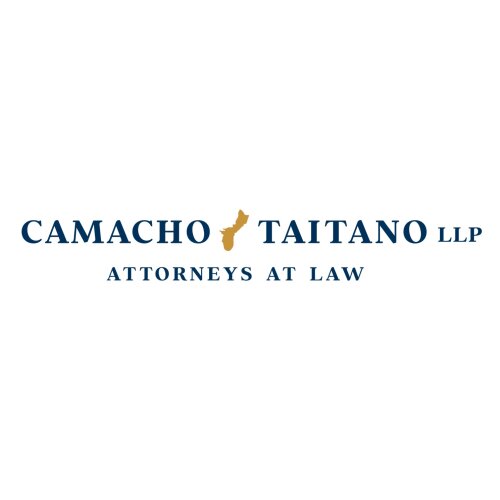Best Restructuring & Insolvency Lawyers in Guam
Share your needs with us, get contacted by law firms.
Free. Takes 2 min.
Or refine your search by selecting a city:
List of the best lawyers in Guam
About Restructuring & Insolvency Law in Guam
Restructuring and insolvency law in Guam is designed to provide both individuals and businesses with a legal framework for addressing financial difficulties. This field principally relates to the processes by which debts are reorganized or discharged, providing relief for financially distressed parties while balancing the interests of creditors. Guam's legal system, as a U.S. territory, is heavily influenced by United States federal law, especially concerning bankruptcy matters. Proceedings may occur under local statutes or within the United States Bankruptcy Court for the District of Guam. Effective restructuring can help businesses continue operating and give individuals a financial fresh start, while insolvency proceedings provide structured solutions for dealing with overwhelming debt.
Why You May Need a Lawyer
Navigating restructuring or insolvency issues can be complex, especially if you are unfamiliar with relevant legal processes and obligations. Here are some common situations where legal help is essential:
- When you or your business is unable to pay debts as they come due
- If creditors are threatening lawsuits, garnishments, or collection actions
- When negotiating with banks, landlords, or suppliers regarding outstanding obligations
- If you need guidance understanding your options under U.S. federal bankruptcy statutes
- When developing a plan to reorganize business operations or assets to recover financial health
- If you are a creditor seeking to recover what you are owed from an insolvent debtor
A qualified lawyer can help you protect your rights, assess all available options, handle court documentation, negotiate with stakeholders, and ensure compliance with relevant laws.
Local Laws Overview
Guam's approach to restructuring and insolvency is mainly governed by the United States Bankruptcy Code, with proceedings handled by the U.S. Bankruptcy Court for the District of Guam. Some matters, especially those related to smaller debts or local businesses, may be impacted by local territorial statutes or the legislation adopted by the Guam Legislature. Key aspects to consider include:
- Personal Bankruptcy: Guam residents can file for bankruptcy under Chapters 7 (liquidation), 11 (reorganization for businesses), or 13 (reorganization for individuals with regular income), adhering to federal rules.
- Business Restructuring: Local businesses can utilize Chapter 11 to propose a plan to keep their business alive and pay creditors over time.
- Creditors’ Rights: Creditors have specific avenues to recover their debts, including proofs of claim and participation in bankruptcy proceedings.
- Exemptions: Some property and assets may be exempt from seizure under either Guam’s or federal exemption statutes, protecting essential assets from creditors.
- Local Court Procedures: The District Court of Guam handles bankruptcy filings and related proceedings, often utilizing federal bankruptcy forms and processes.
Given the interplay between federal and local laws, obtaining competent legal advice is vital for understanding your specific rights and obligations.
Frequently Asked Questions
What is the difference between bankruptcy, restructuring, and insolvency?
Insolvency means being unable to pay debts as they fall due. Bankruptcy is a formal legal process that handles insolvency for individuals or businesses in court. Restructuring typically refers to reorganizing debt or business operations to regain financial stability, which may occur before or instead of bankruptcy.
Can I file for bankruptcy in Guam if I am a resident?
Yes. Residents of Guam may file for bankruptcy under Chapters 7, 11, or 13 through the U.S. Bankruptcy Court for the District of Guam. Eligibility depends on your financial circumstances, income, and previous filings.
How does bankruptcy affect my credit in Guam?
Filing for bankruptcy in Guam, like anywhere in the United States, negatively impacts your credit score. The bankruptcy will appear on your credit report for up to ten years for Chapter 7 and up to seven years for Chapter 13.
Will I lose all my property if I file for bankruptcy in Guam?
No. Both federal and Guam-specific exemption laws may allow you to keep certain necessary assets, like your primary residence, tools of your trade, or personal items, subject to exemption limits.
Can my business continue to operate during bankruptcy?
Yes, many businesses reorganize under Chapter 11 while continuing to operate. The goal is often to restructure debts and create a viable plan to restore profitability while providing a fair return to creditors.
What is the role of creditors in bankruptcy proceedings?
Creditors may participate in the process by filing claims, attending creditors’ meetings, and sometimes voting on reorganization plans. Their rights are protected by both federal and Guam laws.
How long does the bankruptcy process take in Guam?
The time required depends on the type of bankruptcy filed. Chapter 7 may take a few months, while Chapter 11 or 13 can last several years due to complex repayment or reorganization plans.
Are there alternatives to bankruptcy for handling debt in Guam?
Yes, alternatives include informal debt restructuring, negotiation with creditors, debt consolidation, and settlement agreements. A lawyer can advise which options are best for your circumstances.
Is hiring a lawyer necessary for bankruptcy or restructuring?
While not legally required, bankruptcy and debt restructuring involve technical and procedural requirements. Hiring a lawyer ensures you understand your rights and responsibilities and avoid critical errors.
Where are bankruptcy cases handled in Guam?
Bankruptcy cases are handled by the U.S. Bankruptcy Court for the District of Guam, which is a division of the District Court of Guam. Hearings and filings typically occur at the Hagatna courthouse.
Additional Resources
If you are facing restructuring or insolvency issues in Guam, the following resources may be helpful:
- U.S. Bankruptcy Court for the District of Guam: Handles all bankruptcy filings and related proceedings.
- Guam Legal Services Corporation: Provides legal assistance to qualified individuals in need, including help with debt and bankruptcy issues.
- Guam Bar Association: Offers lawyer referral services and information on local attorneys specialized in insolvency law.
- Office of the Attorney General of Guam: Offers consumer protection resources relevant to debt and financial disputes.
- Local credit counseling agencies: Can assist you in managing debt before it becomes unmanageable.
Next Steps
If you believe you may need legal assistance with restructuring or insolvency in Guam, consider the following actions to get started:
- Gather all relevant financial documents, including a list of debts, assets, recent bills, and any court notices.
- Consult with a qualified attorney who practices insolvency and bankruptcy law in Guam to discuss your situation and options.
- Explore whether you qualify for free or low-cost legal assistance from Guam Legal Services Corporation if you have limited resources.
- Attend any consultations prepared to ask questions about timelines, fees, and the possible outcomes of your case.
- Avoid making large financial transactions, paying select creditors, or transferring assets before you receive legal advice, as this can complicate your case.
Taking prompt action can often result in better outcomes. If you feel overwhelmed or unsure about your options, reaching out to a knowledgeable legal professional is the most effective way to protect your interests and start moving toward financial stability.
Lawzana helps you find the best lawyers and law firms in Guam through a curated and pre-screened list of qualified legal professionals. Our platform offers rankings and detailed profiles of attorneys and law firms, allowing you to compare based on practice areas, including Restructuring & Insolvency, experience, and client feedback.
Each profile includes a description of the firm's areas of practice, client reviews, team members and partners, year of establishment, spoken languages, office locations, contact information, social media presence, and any published articles or resources. Most firms on our platform speak English and are experienced in both local and international legal matters.
Get a quote from top-rated law firms in Guam — quickly, securely, and without unnecessary hassle.
Disclaimer:
The information provided on this page is for general informational purposes only and does not constitute legal advice. While we strive to ensure the accuracy and relevance of the content, legal information may change over time, and interpretations of the law can vary. You should always consult with a qualified legal professional for advice specific to your situation.
We disclaim all liability for actions taken or not taken based on the content of this page. If you believe any information is incorrect or outdated, please contact us, and we will review and update it where appropriate.
Browse restructuring & insolvency law firms by city in Guam
Refine your search by selecting a city.










